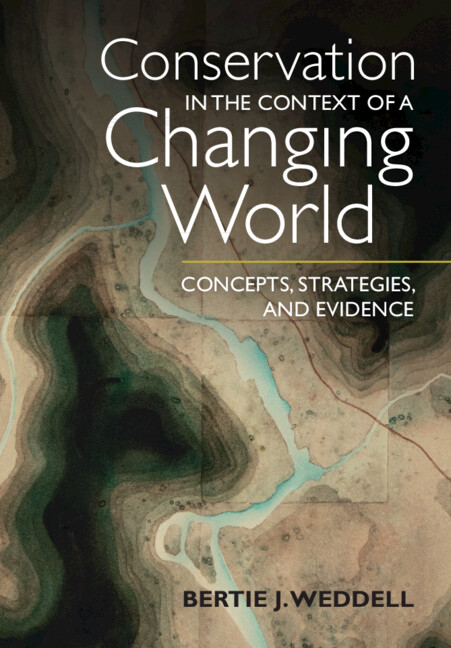
Conservation in the Context of a Changing World: Concepts, Strategies, and Evidence
Many issues in contemporary conservation provoke strong responses. Rewilding, mother trees, megafaunal extinctions, bioprospecting, the rights of nature, and other polarizing issues elicit intense reactions. In Conservation in the Context of a Changing World: Concepts, Strategies, and Evidence, I provide historical, ecological, and cultural contexts essential for understanding these complex issues, along with key concepts, strategies for addressing them, and guidance for critically evaluating evidence regarding those ideas and methods. Utilitarian, preservationist, and stewardship approaches to conservation are explored within a broad, multidisciplinary geographical and cultural scope.
A utilitarian approach to conservation leads to management of harvests and habitats to favor economically valuable products and to minimize conflicts with species that are considered pests. Preservationist conservation involves protection and restoration of a broader spectrum of species and ecosystems.
I address prevalent misconceptions and assumptions about conservation in this textbook, and examine their potential for unanticipated consequences. For example, the key concept of feedback is often a source of confusion. The meaning of ‘feedback’ in science is quite different from what the term means in everyday usage. In a scientific context, the term positive feedback refers to change in one direction that sets off further change in the same direction. Conversely, negative feedback occurs when change in a variable in one direction is followed by compensatory changes that cause the value of the variable to move back toward the opposite direction (tending to return to its original level). Control of a room’s temperature by a thermostat is an example of negative feedback; it promotes stability, whereas positive feedback results in sudden, explosive change.
This usage is quite different from what we mean when we say we give ‘feedback’ to someone. But there is a connection between these different uses of the term. If I give someone negative feedback, I am dissatisfied with something, perhaps their behavior. I want them to reverse the direction of that behavior. The key to distinguishing between the two types of feedback is to determine whether the variable of interest is enhanced or reduced.
Understanding positive and negative feedback has implications for conservation because several positive feedback loops reinforce the effects of greenhouse gases in the Earth’s atmosphere. For instance, models suggest that deforestation and burning of South American tropical forest could lead to an irreversible tipping point at which the CO2-removing service of a major carbon sink would be lost.
As climate-related disasters become more intense, more frequent, more widespread, and more dangerous, recognition of the potential for sudden, cataclysmic change sets the stage for an approach to conservation that emphasizes the variability and complexity of nature and encompasses the activities of people. This stewardship approach involves managing the effects of ecosystem processes and feedbacks on key disturbance regimess, structures, interactions, and species.
Meanwhile, special interest groups downplay the risks posed by climate change and other environmental perturbations. Incorrect information and specious reasoning thrive under these conditions, making rigorous education about climate science critical. To combat both naive acceptance and knee-jerk rejection of ideas, Conservation in the Context of a Changing World: Concepts, Strategies, and Evidence guides readers through critical examination of ideas and evidence.
In short, to respond effectively to the challenges of conservation in the context of a changing world, it is imperative to understand the context, central concepts, and strategies of different approaches to conservation and the evidence for their effects.
There is much to worry about in Conservation in the Context of a Changing World: Concepts, Strategies, and Evidence. There is also much to suggest a way forward.
We can admit what we don’t know, frame clear questions, and set about trying to get answers. As new information becomes available, we can revise our understanding, update our information, come up with new questions, and continue. We can carefully evaluate evidence and arguments. We can examine our biases and try to avoid having them cloud our judgment.
There will be surprises. There will be disappointments and setbacks. We will have to confront difficult tradeoffs.
But it is worth the effort.

Title: Conservation in the Context of a Changing World
Author: Bertie J. Weddell
Format: PB- 9781108986502
Latest Comments
Have your say!